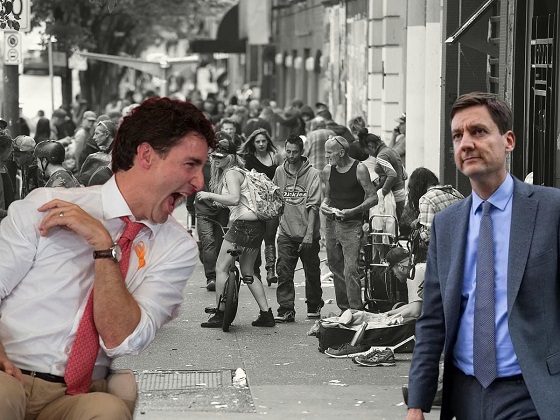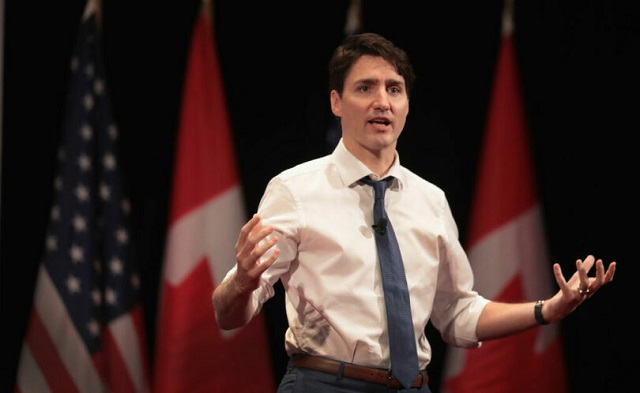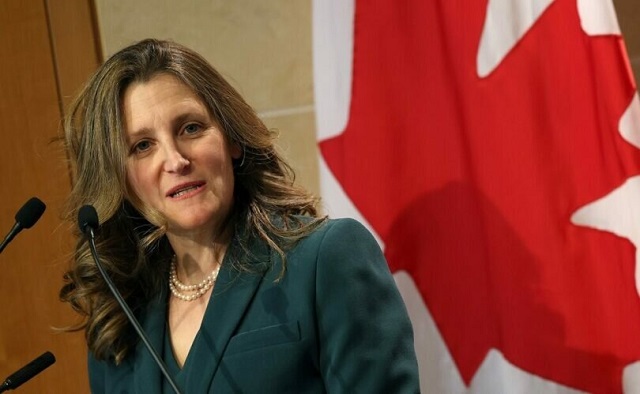Economy
Deputy PM Freeland doesn’t deny Scott Moe could face charges for not collecting carbon tax
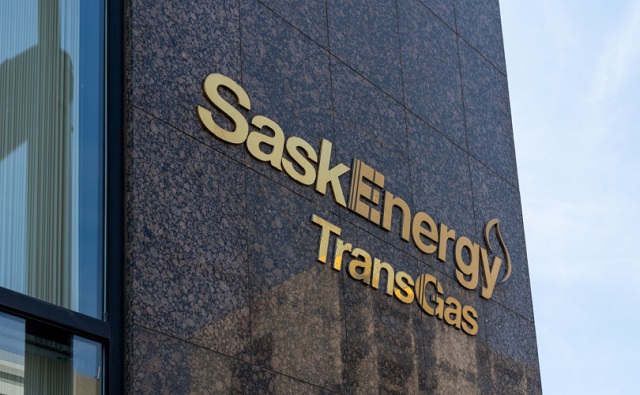
From LifeSiteNews
Premier Scott Moe’s refusal to force Saskatchewan residents to pay the tax comes after Prime Minister Justin Trudeau refused to extend the tax exemption to forms of heating used in Conservative provinces
The Canadian Liberal government refuses to rule out jail time for Saskatchewan Premier Scott Moe if he refuses to collect the carbon tax on home heating.
During a November 3 media meeting, Liberal Finance Minister and Deputy Prime Minister Chrystia Freeland avoided directly answering if Moe would be criminally charged for refusing to collect Trudeau’s controversial carbon tax for home heating within the province.
“What can the federal government do to prevent [Moe] from acting unilaterally?” a reporter questioned. “Will he, will the province, will anyone, incur penalties? Will there be fees? Or perhaps even jail time?”
Freeland did not answer the question directly, instead saying, “The federal government expects everyone in Canada to obey the law. Canada is a country of good peace, order, and good government.”
“I think that is something all Canadians believe in. That’s something we expect,” she added.
Moe’s refusal to force Saskatchewan residents to pay the tax comes after Prime Minister Justin Trudeau suspended his carbon tax last week on home heating oil amid rising costs of living and his decreasing popularity across multiple polls.
Moe pointed out that the tax exemption only applies to home heating oil, which is primarily used in Atlantic provinces, while other forms of heating, including natural gas (the main source of heat in Western provinces), is not exempt.
“I cannot accept the federal government giving an affordability break to people in one part of Canada but not here,” Moe said in a video posted October 30 on X.
“The prime minister chose to make life more affordable for families in one part of the country while leaving Saskatchewan families out in the cold,” he said.
As a result, Moe promised that if the exemption was not extended to other forms of heating, he will direct SaskEnergy to stop collecting carbon tax on natural gas, “effectively providing Saskatchewan residents with the very same exemption that the federal government has given heating oil in Atlantic Canada.”
Following Moe’s demands, Trudeau declared that he will not make any further carve-outs to the carbon tax. Trudeau’s statement was supported by both Natural Resources Minister Jonathan Wilkinson and Environment Minister Steven Guilbeault.
Notably, Freeland’s comments come just months after she faced a massive speeding ticket when defending the Trudeau government’s carbon tax by saying that she does not own a car and bikes instead.
Trudeau’s carbon tax, framed as a way to reduce carbon emissions, has cost Canadians hundreds more annually despite rebates.
The increased costs are only expected to rise, as a recent report revealed that a carbon tax of more than $350 per tonne is needed to reach Trudeau’s net-zero goals by 2050.
Currently, Canadians living in provinces under the federal carbon pricing scheme pay $65 per tonne, but the Trudeau government has a goal of $170 per tonne by 2030.
Business
Taxpayers criticize Trudeau and Ford for Honda deal

From the Canadian Taxpayers Federation
Author: Jay Goldberg
The Canadian Taxpayers Federation is criticizing the Trudeau and Ford governments to for giving $5 billion to the Honda Motor Company.
“The Trudeau and Ford governments are giving billions to yet another multinational corporation and leaving middle-class Canadians to pay for it,” said Jay Goldberg, CTF Ontario Director. “Prime Minister Justin Trudeau is sending small businesses bigger a bill with his capital gains tax hike and now he’s handing out billions more in corporate welfare to a huge multinational.
“This announcement is fundamentally unfair to taxpayers.”
The Trudeau government is giving Honda $2.5 billion. The Ford government announced an additional $2.5 billion subsidies for Honda.
The federal and provincial governments claim this new deal will create 1,000 new jobs, according to media reports. Even if that’s true, the handout will cost taxpayers $5 million per job. And according to Globe and Mail investigation, the government doesn’t even have a proper process in place to track whether promised jobs are actually created.
The Parliamentary Budget Officer has also called into question the government’s claims when it made similar multi-billion-dollar handouts to other multinational corporations.
“The break-even timeline for the $28.2 billion in production subsidies announced for Stellantis-LGES and Volkswagen is estimated to be 20 years, significantly longer than the government’s estimate of a payback within five years for Volkswagen,” wrote the Parliamentary Budget Officer said.
“If politicians want to grow the economy, they should cut taxes and red tape and cancel the corporate welfare,” said Franco Terrazzano, CTF Federal Director. “Just days ago, Trudeau said he wants the rich to pay more, so he should make rich multinational corporations pay for their own factories.”
Business
Maxime Bernier warns Canadians of Trudeau’s plan to implement WEF global tax regime

From LifeSiteNews
If ‘the idea of a global corporate tax becomes normalized, we may eventually see other agreements to impose other taxes, on carbon, airfare, or who knows what.’
People’s Party of Canada leader Maxime Bernier has warned that the Liberal government’s push for World Economic Forum (WEF) “Global Tax” scheme should concern Canadians.
According to Canada’s 2024 Budget, Prime Minister Justin Trudeau is working to pass the WEF’s Global Minimum Tax Act which will mandate that multinational companies pay a minimum tax rate of 15 percent.
“Canadians should be very concerned, for several reasons,” People’s Party leader Maxime Bernier told LifeSiteNews, in response to the proposal.
“First, the WEF is a globalist institution that actively campaigns for the establishment of a world government and for the adoption of socialist, authoritarian, and reactionary anti-growth policies across the world,” he explained. “Any proposal they make is very likely not in the interest of Canadians.”
“Second, this minimum tax on multinationals is a way to insidiously build support for a global harmonized tax regime that will lower tax competition between countries, and therefore ensure that taxes can stay higher everywhere,” he continued.
“Canada reaffirms its commitment to Pillar One and will continue to work diligently to finalize a multilateral treaty and bring the new system into effect as soon as a critical mass of countries is willing,” the budget stated.
“However, in view of consecutive delays internationally in implementing the multilateral treaty, Canada cannot continue to wait before taking action,” it continued.
The Trudeau government also announced it would be implementing “Pillar Two,” which aims to establish a global minimum corporate tax rate.
“Pillar Two of the plan is a global minimum tax regime to ensure that large multinational corporations are subject to a minimum effective tax rate of 15 per cent on their profits wherever they do business,” the Liberals explained.
“The federal government is moving ahead with legislation to implement the regime in Canada, following consultations last summer on draft legislative proposals for the new Global Minimum Tax Act,” it continued.
According to the budget, Trudeau promised to introduce the new legislation in Parliament soon.
The global tax was first proposed by Secretary-General of Amnesty International at the WEF meeting in Davos this January.
“Let’s start taxing carbon…[but] not just carbon tax,” the head of Amnesty International, Agnes Callamard, said during a panel discussion.
According to the WEF, the tax, proposed by the Organization for Economic Co-operation and Development (OECD), “imposes a minimum effective rate of 15% on corporate profits.”
Following the meeting, 140 countries, including Canada, pledged to impose the tax.
While a tax on large corporations does not necessarily sound unethical, implementing a global tax appears to be just the first step in the WEF’s globalization plan by undermining the sovereignty of nations.
While Bernier explained that multinationals should pay taxes, he argued it is the role of each country to determine what those taxes are.
“The logic of pressuring countries with low taxes to raise them is that it lessens fiscal competition and makes it then less costly and easier for countries with higher taxes to keep them high,” he said.
Bernier pointed out that competition is good since it “forces everyone to get better and more efficient.”
“In the end, we all end up paying for taxes, even those paid by multinationals, as it causes them to raise prices and transfer the cost of taxes to consumers,” he warned.
Bernier further explained that the new tax could be a first step “toward the implementation of global taxes by the United Nations or some of its agencies, with the cooperation of globalist governments like Trudeau’s willing to cede our sovereignty to these international organizations.”
“Just like ‘temporary taxes’ (like the income tax adopted during WWI) tend to become permanent, ‘minimum taxes’ tend to be raised,” he warned. “And if the idea of a global corporate tax becomes normalized, we may eventually see other agreements to impose other taxes, on carbon, airfare, or who knows what.”
Trudeau’s involvement in the WEF’s plan should not be surprising considering his current environmental goals – which are in lockstep with the United Nations’ 2030 Agenda for Sustainable Development – which include the phasing out coal-fired power plants, reducing fertilizer usage, and curbing natural gas use over the coming decades.
The reduction and eventual elimination of so-called “fossil fuels” and a transition to unreliable “green” energy has also been pushed by the World Economic Forum – the aforementioned group famous for its socialist “Great Reset” agenda – in which Trudeau and some of his cabinet are involved.
-

 conflict2 days ago
conflict2 days agoCol. Douglas Macgregor torches Trump over support for bill funding wars in Ukraine and Israel
-

 Censorship Industrial Complex2 days ago
Censorship Industrial Complex2 days agoNow We Are Supposed to Cheer Government Surveillance?
-

 Alberta2 days ago
Alberta2 days agoRed Deer Doctor critical of Alberta’s COVID response to submit report to Danielle Smith this May
-

 Business20 hours ago
Business20 hours agoDon’t be fooled by high-speed rail
-

 Alberta19 hours ago
Alberta19 hours agoActivity-Based Hospital Funding in Alberta: Insights from Quebec and Australia
-

 Health2 days ago
Health2 days agoTransgender activists are threatening the author of scathing UK report on child ‘sex changes’
-

 Business17 hours ago
Business17 hours agoUN plastics plans are unscientific and unrealistic
-
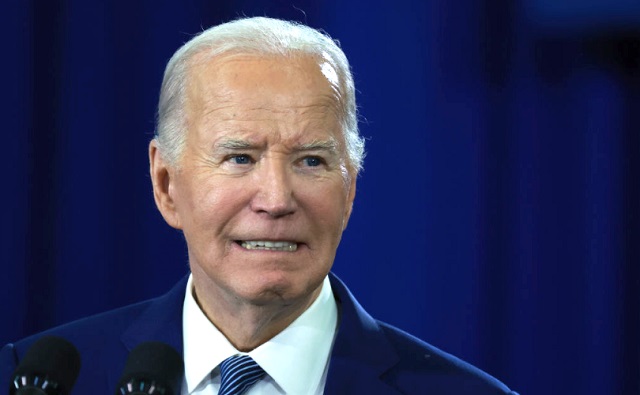
 International2 days ago
International2 days agoBiden admin expands Title IX to include ‘gender identity,’ sparking conservative backlash

